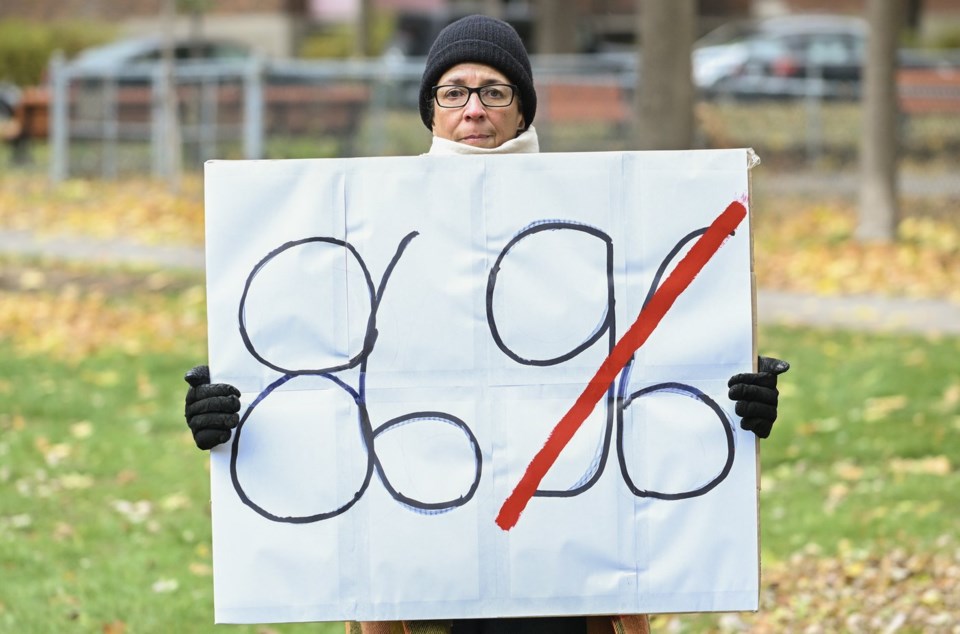MONTREAL — A group of 23 bilingual municipalities asked a Quebec Superior Court judge on Monday to suspend several portions of the province's 2022 language reform, arguing that the application of the law will cause them serious and irreparable harm.
Lawyer Julius Grey told the Montreal courtroom that the law contains measures that will have "enormous consequences" for cities that have the right to serve citizens in both English and French. Municipalities without official bilingual status are prohibited from communicating with residents in English.
Meanwhile, a government lawyer said Grey's arguments are based on fear and have "no legal basis or factual basis."
Grey said the law could prevent cities from writing contracts in English, would grant the government the ability to withhold federal subsidies to cities that don't comply, and would give the language watchdog vast powers of search and seizure that exceed those of police.
"The (Quebec language office) can demand any documents, inspect whatever they want to," Grey said. "It’s much more than the police can do without a warrant."
He said the law gives the language watchdog — Office québécois de la langue française — the right to seize materials which could include employees' personal information, budget documents and even legal advice that should be protected under attorney-client privilege. It would also require municipalities to discipline employees who don't conform, he said.
Grey asked the judge to suspend the application of several provisions until a full hearing can be held on the validity of the law, for which the government proactively invoked the notwithstanding clause to shield it from some court challenges.
In court, Grey said that some of the municipalities involved in the challenge are overwhelmingly composed of English-speakers, and suggested it would be hard under the law for them to finalize contracts or continue to have unilingual anglophone employees.
Outside the courtroom, he said those potential harms amount to "serious prejudice" against the towns and cities.
"The contracts, the vast power of search and seizure, the federal subsidies that are given out and the duty to discipline are all things which should await a final decision on what the rules are," he said.
For its part, the Quebec government, represented by lawyer Charles Gravel, told Justice Silvana Conte that the municipalities haven't provided any evidence that they've been harmed by the law. There's no proof any seizures have happened, he said, or that subsidies have been cut, and the cities' concern shouldn't be enough to suspend the law without evidence it's caused any harm.
"You can’t mix up apprehensions and facts," he said.
Gravel said many of the towns' concerns — including their contention that they won't be able to have unilingual English employees — are overblown and not supported by the text of law.
He also contends that municipalities are "creatures of the provincial legislator" and therefore they have no jurisdiction over administrative measures such as contracts. Municipalities, he added, weren't created with a role of protecting language, suggesting they had no foundation to challenge language laws.
"The municipal administration only has the powers conferred on them by provincial legislative measures," he said.
Later on Monday, in his response to Gravel's arguments, Grey told the court that municipalities don't have to show that they have already been harmed by the law — only that the risk of harm is real.
The 23 municipalities include several Montreal suburbs such as Westmount and Côte-St-Luc, as well as smaller communities located mostly near the borders with the United States or the boundaries with other provinces, including New Brunswick or Ontario.
Steven Erdelyi, a city councillor for the Montreal-area city of Côte-St-Luc, said his municipality receives $3 million to $4 million a year in grants, mostly originating federally, which help pay for infrastructure.
"At a moment's notice, the minister responsible for the French language could cut the grants for the 23 bilingual cities that accounts for $110 million over four years," he said outside the courtroom.
Erdelyi said that while the city isn't aware of any subsidy cuts or search and seizures having happened so far, he feels the language watchdog has been targeting his city by increasing inspections of local businesses. "It's important for us to take a stand on this and we will continue to fight this to the fullest extent of the law," he said.
The mayor of Bonne-Espérance, a 695-person town near the Labrador border, said in a news release that the section of the law stating contracts must be in French has led to a lot of confusion.
"It's absurd that for our municipality, where 99 per cent of the population has English as their preferred language, we cannot produce contracts with suppliers in our community in English," Dale Roberts-Keats said.
This report by The Canadian Press was first published Sept. 30, 2024.
Morgan Lowrie, The Canadian Press



